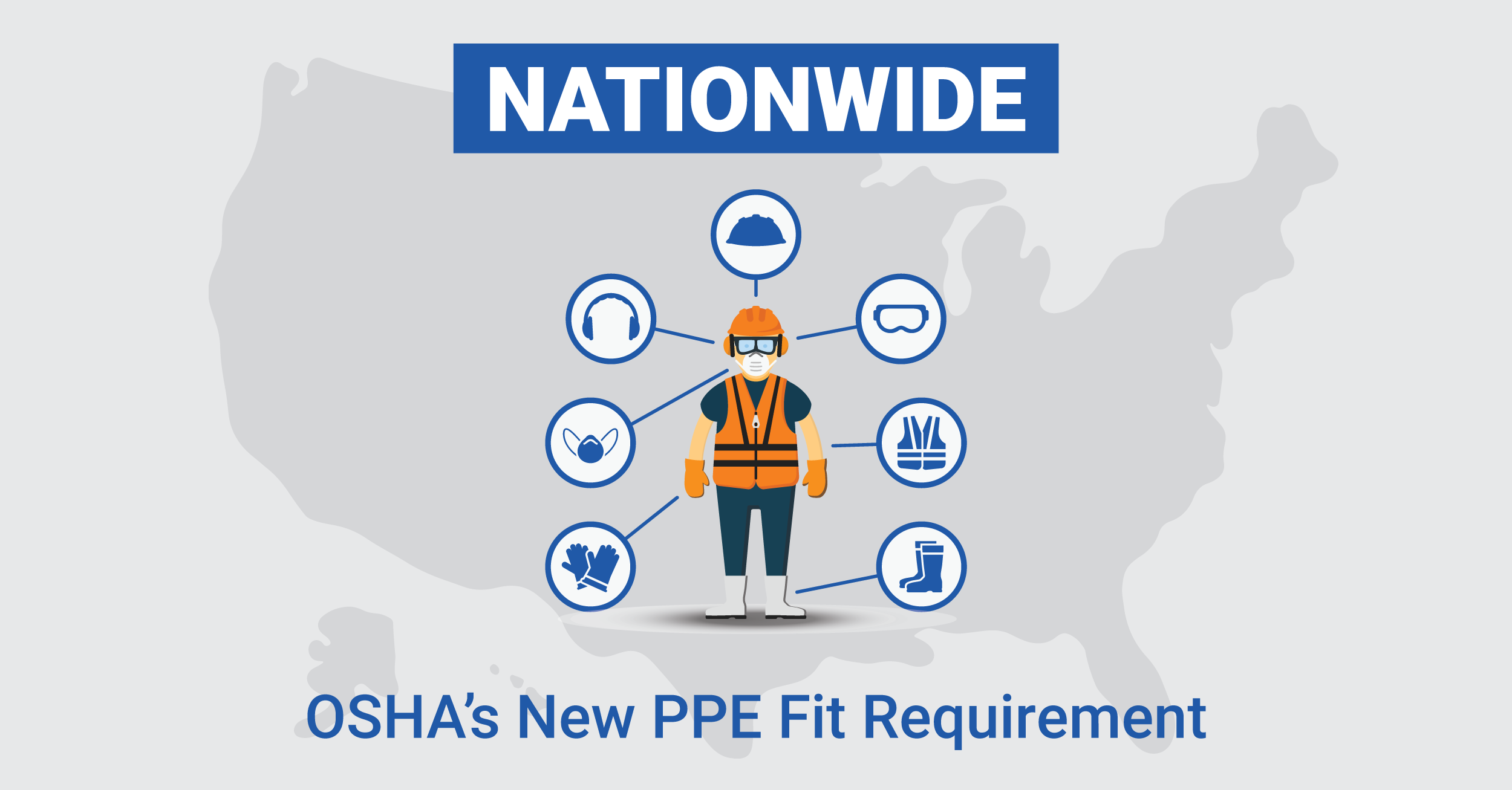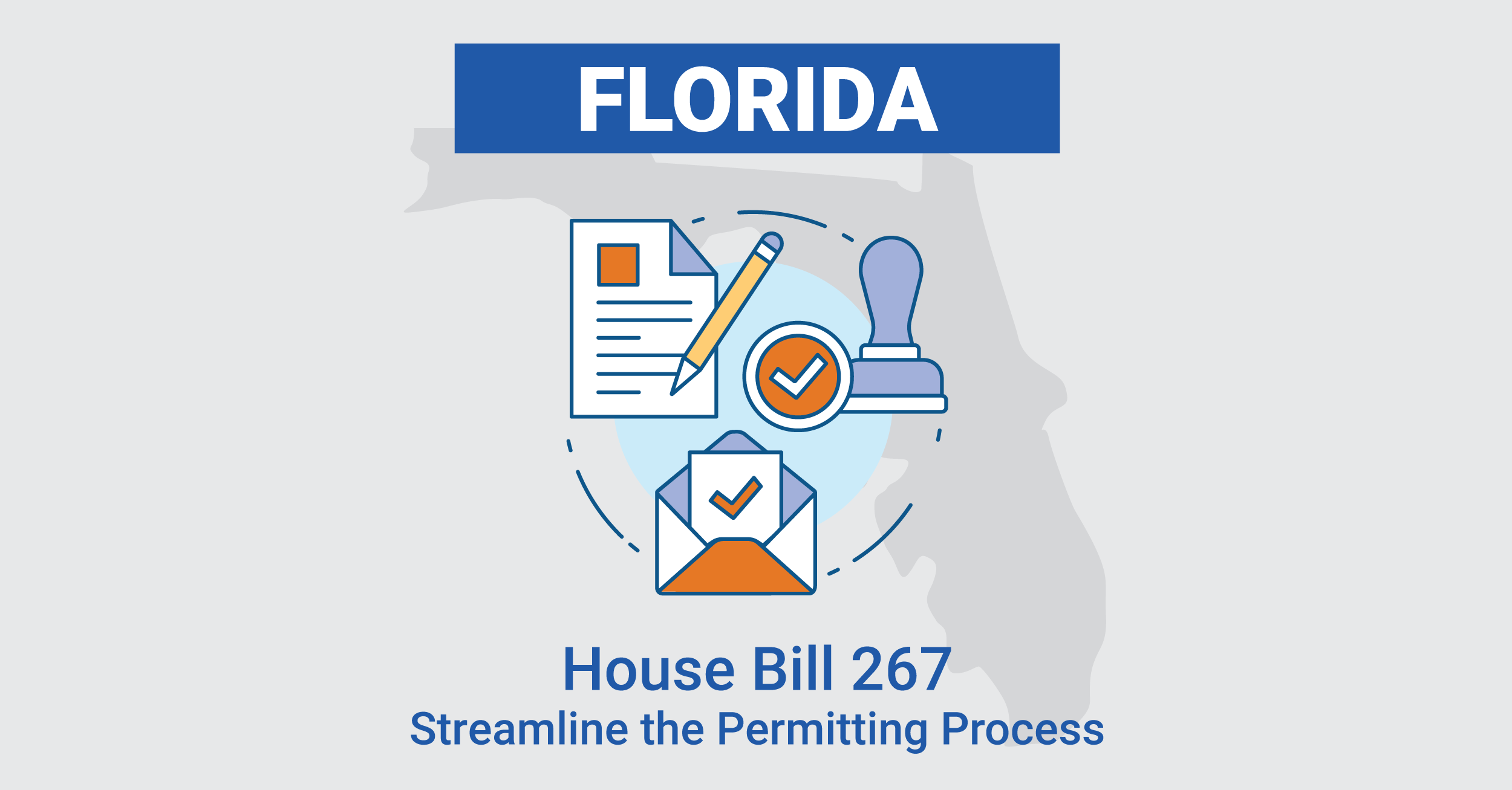.jpg)
.jpg)
As industry leaders in commercial construction, we like to stay up to date with news concerning recent laws and regulations that are reshaping the construction landscape. This article covers a breakdown of the most notable changes taking place in major states across the nation.

Nationwide
OSHA’s New PPE Fit Requirement
In December 2024, the Occupational Safety and Health Administration (OSHA) announced a significant update: all personal protective equipment (PPE) must now “properly fit” the worker it is assigned to. As an amendment to the 29 CFR 1926.95 (c), it addresses long-standing issues faced by many in the workforce—particularly women and workers with smaller frames who often struggle with ill-fitting standard-issue gear. By enforcing better-fitting PPE, OSHA is aiming to close safety gaps and reduce injuries on jobsites across the country.

California
Assembly Bill 98
Signed into law on September 29, 2024, and set to take effect January 1, 2026, Assembly Bill 98 places new limitations on large warehouse developments in California. The bill specifically targets buildings used for cargo storage or distribution involving heavy-duty trucks, especially in warehouse-heavy regions like the Inland Empire. It requires buffer zones between these facilities and sensitive sites like homes and schools, mandates cleaner building designs, and calls for detailed truck traffic route plans.
Stricter Lead Exposure Standards
Starting in 2025, California is adopting the strictest lead exposure limits for construction workers in the country. While the federal permissible exposure limit remains 50 micrograms per cubic meter, California will lower that threshold to just 10 micrograms, with an action level of 2 micrograms (compared to the federal level of 30). These changes are being enforced by Cal/OSHA and reflect the state’s commitment to protecting workers from long-term health risks associated with lead exposure.
SB61
In an aim to provide more financial predictability within construction, SB61, effective January 1, 2026, will cap retention on private construction projects to a maximum of 5% at each level of a contract. This will take place from the owner to the direct contractor, and between contractors and subcontractors.
Two exceptions to this bill include the following: If a subcontractor fails to provide a performance and payment bond after being notified it will be required, the retention limit may not apply; also, the retention limits do not apply to residential projects of four stories or less that are not mixed use. With any legal action to enforce these provisions, the court must award reasonable attorney’s fees to the prevailing party.

Texas
Senate Bill 840
Still under review, Senate Bill 840 could drastically shift development authority in major Texas cities. If passed, the bill would allow developers to build or convert properties in commercial zones into apartments or mixed-use housing without requiring traditional rezoning. Cities would be restricted from imposing limits on density, building height, parking requirements, setbacks, fees, and even architectural design. If approved, this bill could accelerate development timelines, reduce permitting barriers, and help meet growing housing demand, opening new opportunities for contractors in high-growth urban markets.

Florida
House Bill 267
Florida’s new law, House Bill 267, aims to streamline the permitting process. Local governments are now required to review and make decisions on residential and commercial building permits within strict timeframes: 30 business days for structures under 7,500 square feet and 60 business days for larger projects. If a city or county fails to meet these deadlines, the applicant’s fees are reduced by 10% for each day the decision is delayed. The law is designed to speed up development and reduce project delays due to local bureaucracy.

Arizona
Senate Bill 1182
Passed on May 13, 2025, Senate Bill 1182 responds to Arizona’s extreme summer temperatures by allowing construction work to begin as early as 5 a.m. on weekdays during the hotter months. The rule will remain in effect through October 15 each year. The goal is to protect workers from heat-related illnesses while maintaining productivity during the most challenging part of the construction season.
Together, these new regulations signal a shift in how federal and state governments are approaching construction policy while balancing the need for development with stronger safety standards and community protections.
*This report might be a snapshot of a particular moment, as conditions (and laws) could change rapidly. New findings or developments might emerge, leading to future corrections or updates.